West Africa Explorer, Guinea-Bissau & Senegal
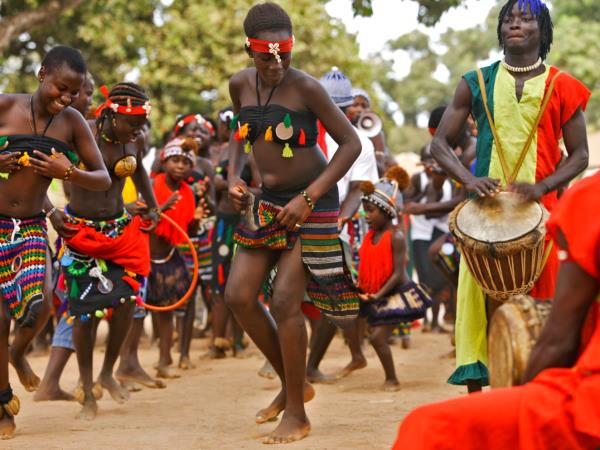
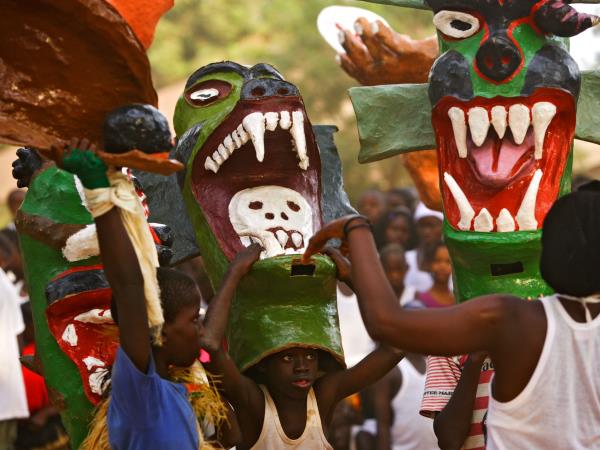
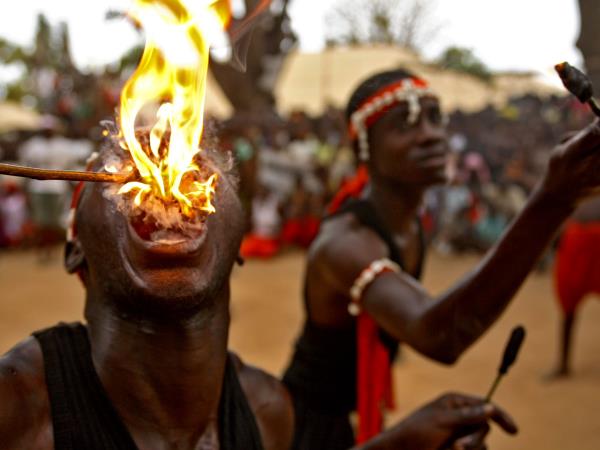
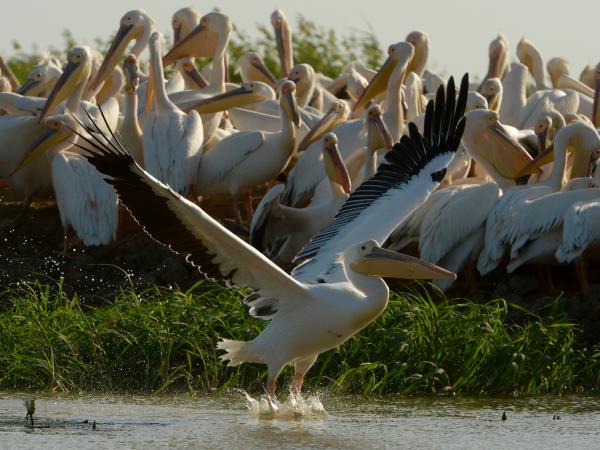
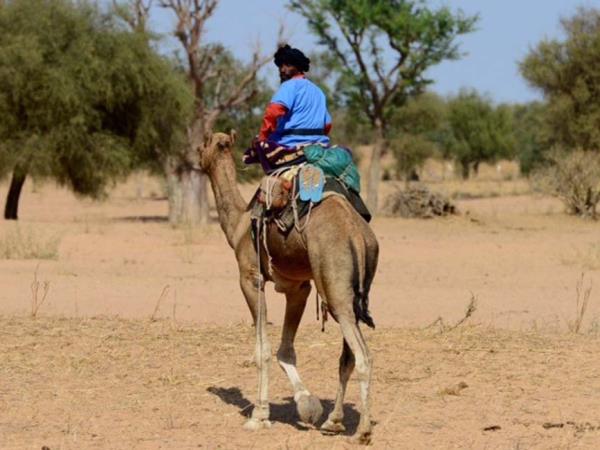
A two week exploration of some of West Africa’s most remote and remarkable places, starting in Senegal and winding round to Guinea-Bissau. Traveling in a small group with expert local guide.
Dakar Djoudj National Park St Louis Fulani people Touba Lac Rose Goree Island Dioula community Cap Skirring Felupe and Baiote peoples Cacheu Bijagos Islands Turtle watching Canhabaque Island
Price
£3949To£4249 excluding flights
Description of West Africa Explorer, Guinea-Bissau & Senegal
Check dates, prices & availability
Travel guides
West Africa is a place where darkness and light sit side by side, balancing, complementing and creating an intriguing mix of culture and history that ...
Tiny Guinea-Bissau, sandwiched between its beefier West African neighbours Senegal and Guinea, is overlooked, little known or at best, prone to mixed ...
Reviews
1 Reviews of West Africa Explorer, Guinea-Bissau & Senegal
5 out of 5 stars
Reviewed on 17 Nov 2019 by Michael Segal
1. What was the most memorable or exciting part of your vacation?
It's almost impossible to pick one thing. The range and variety of experiences were fantastic. Perhaps the thing that will stick most vividly in my memory was
the time spent at the fishing village of Kayar.
2. What tips would you give other travelers booking this vacation?
Be prepared for a lot or road travel and also several quite long ocean trips in a speedboat:- take lots of anti-seasick medicine if you are susceptible and if you
have back problems, be prepared for hours of bumpy rides. The bird-watching is fantastic so bring a good camera if you are interested.
3. Did you feel that your vacation benefited local people, reduced environmental impacts or supported conservation?
I am sure that our vacation benefited many local people we supported local guides in most places we visited and contributed financially to various villages
and many musicians and dancers. Our visits to nature reserves of various kinds should also have supported conservation. In terms of reducing
environmental impact, it is possible that our influence may have reduced the way some people dispose of litter, but I am not very optimistic about that. we
were given drinking water in plastic bottles every day, it would have been much better to have some bulk supplies that we could use to top up our own
bottles, if that could be arranged.
4. Finally, how would you rate your vacation overall?
Wonderful. Lots of fascinating experiences of different kinds. Could be improved by more detailed trip notes and/or better briefing from the guides, but
that's a minor point.
Responsible Travel
As the pioneers of responsible tourism, we've screened this (and every) vacation so that you can travel knowing it will help support the places and people that you visit, and the planet. Read how below.
Planet
While on this tour we visit Djoudj National Park, an important wetland sanctuary that is home to around 1.5 million birds, and a UNESCO World Heritage Site. Our visit here provides income to local communities, who are thus incentivised to continue preserving the area and are able to see the value of it as an environment rather than a resource. The entrance fees paid also help to fund continued conservation efforts.On the Bijagos Islands we look for saltwater hippos and turtles, again involving local communities. We take special care to ensure that our presence does not disturb these animals, in particular the turtles when they are nesting.
This tour travels through some very remote regions, some of which have barely been touched by the presence of humans, and we strongly believe in maintaining their pristine nature. We strive to ensure that we leave these areas as we find them and our team have been trained in strict no litter policies, meaning that we take all refuse to either be recycled or properly disposed of in nearby towns.
Similarly, in conjunction with our local team we work with hotels and guesthouses to implement best practices when it comes to environmental matters – again in some places this is far behind what we might be used to in other parts of the world. This includes basic things like not replacing towels each day, as well as saving electricity and turning lights off.
Our travelers are specifically briefed on not to buy souvenirs made from endangered species – people in remote parts of West Africa do not always have the same respect towards wildlife as most travelers will have, and can sometimes offer such things for sale. This also extends to bushmeat – it is quite common to find antelope, porcupine or even monkey served in restaurants, and we specifically advise our travelers against contributing to the depletion of local populations.
People
As with many of the trips that we offer, this tour has a strong focus on local culture and different ethnic groups. Where possible we try to ensure that local people benefit from our presence.We spend time with some traditional ethnic groups on this trip, from those in the Bijagos Islands and the Dioula people in Senegal. Tourism rarely reaches here and we recognise that we have a special responsibility to ensure that the encounters that we have are carried out in a responsible manner. We consult extensively with local tribal elders to ensure that our presence here is very much welcomed – we feel that it is very important to be seen as guests here rather than outsiders come to merely look. We are able to spend time with the communities learning about their traditions and customs.
We are careful not to disrupt the traditional way of life of the people that we meet. As a way to say thank you for allowing us to visit, we bring traditional gifts, such as sugar, tea and so on – we do not bring modern accoutrements that may change their way of life as we feel that it is important for all tribal groups that any move towards a more ‘modern’ lifestyle is made on their own terms and not imposed upon them. We give gifts to the elders of the villages who will then ensure that they are distributed appropriately, rather than just giving them to individuals, which can cause problems, jealousy and fights within small communities.
Where small local shops exist within the villages, we encourage our travelers to buy something, be it a cold drink or a snack, so that we have some economic benefit, however small. We employ local guides from the villages to show us around – not only does this give our travelers a greater insight into traditions but again it helps to put money into the local economy.
These are very traditional areas with certain codes of behaviour, and the people here are not that accustomed to outsiders. We ensure that our travelers are appropriately briefed in order so as not to offend local sensibilities. This includes photography – while we recognise that many people are incredibly photogenic it is important for us to respect their wishes should they not want to have their photo taken, and our travelers are carefully briefed upon this.
Popular similar vacations
West Africa explorer tour, Marrakech to Cotonou
From £15999 - £16999 8 weeks excluding flights
An epic journey from Morocco to the voodoo coast of Benin
Ghana,Togo and Benin experience tour
From £5595 14 days excluding flights
Experience the culture, history and wildlife of West Africa
Ghana, Togo and Benin vacation, gold and magic
From £3199 - £3299 14 days excluding flights
Traditional villages and voodoo in Ghana, Togo and Benin











